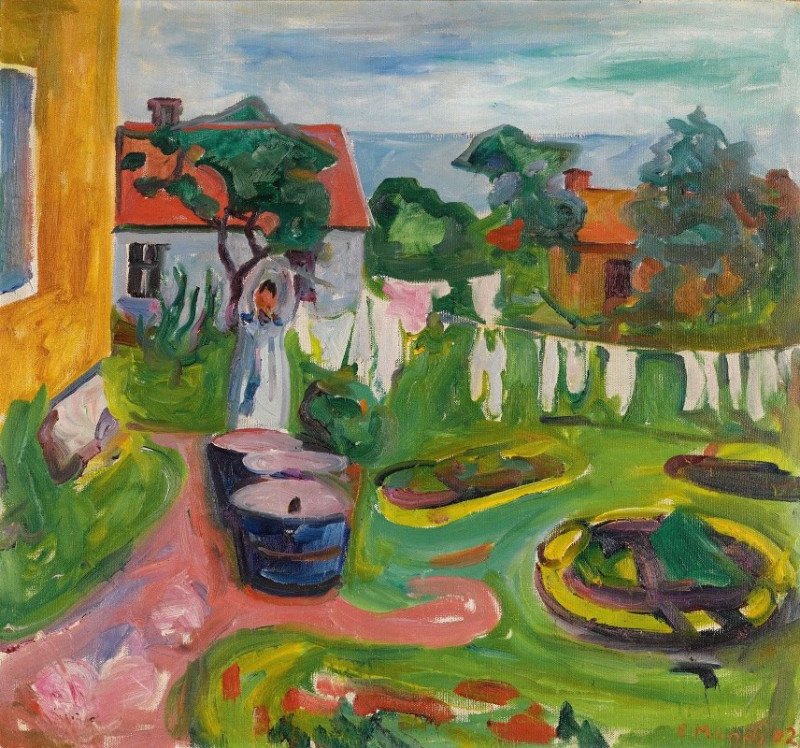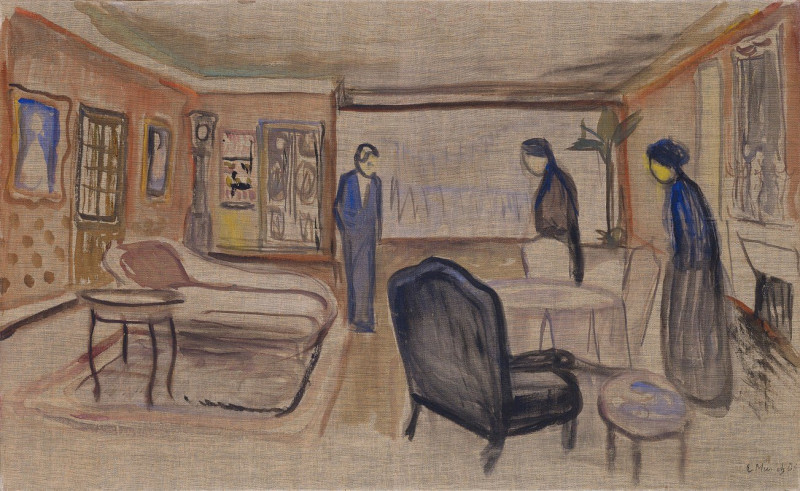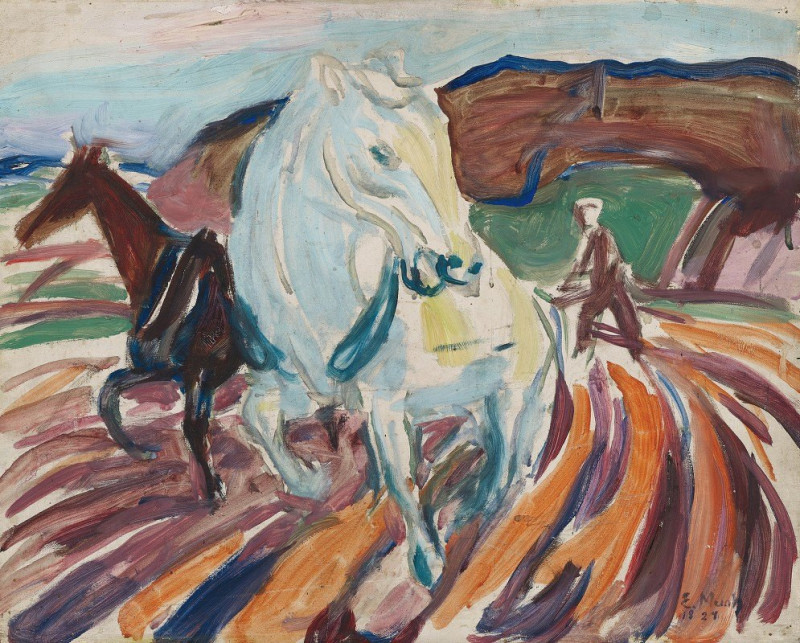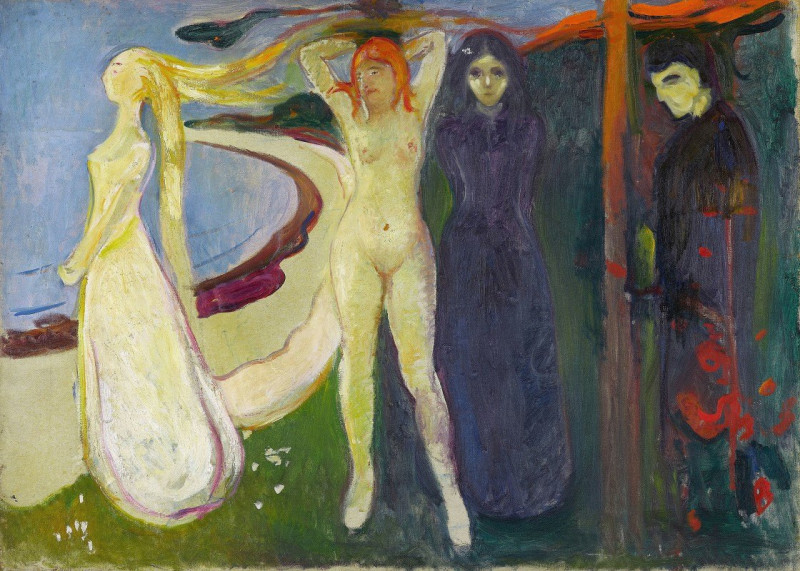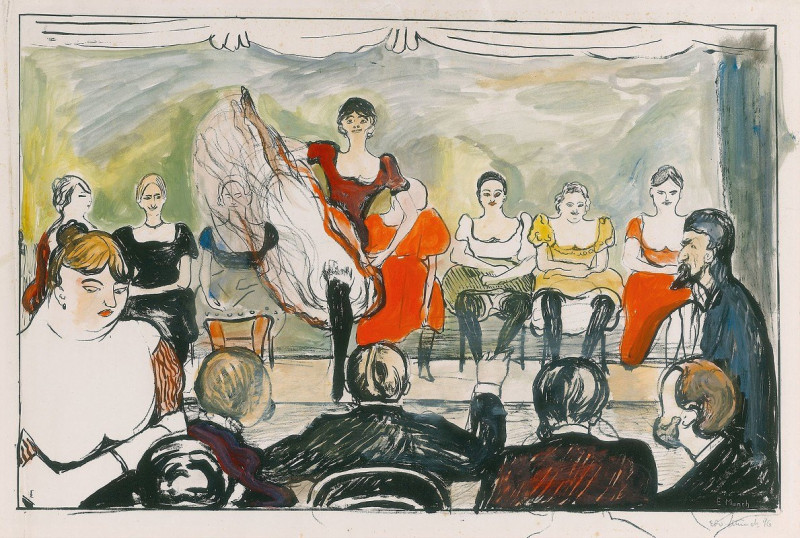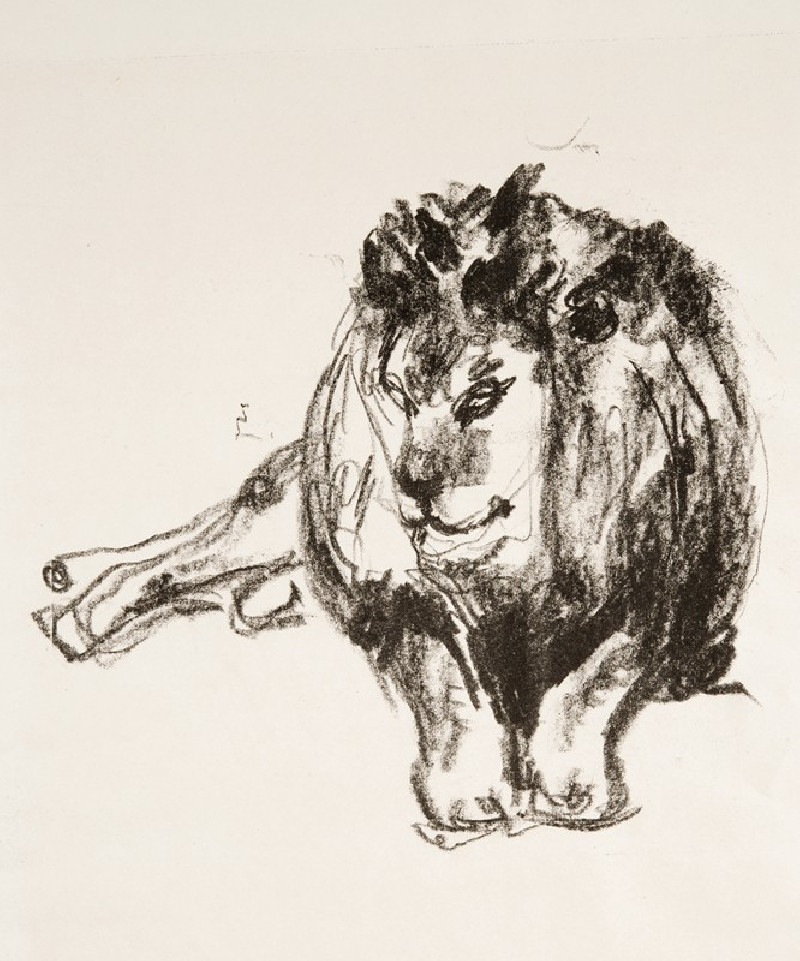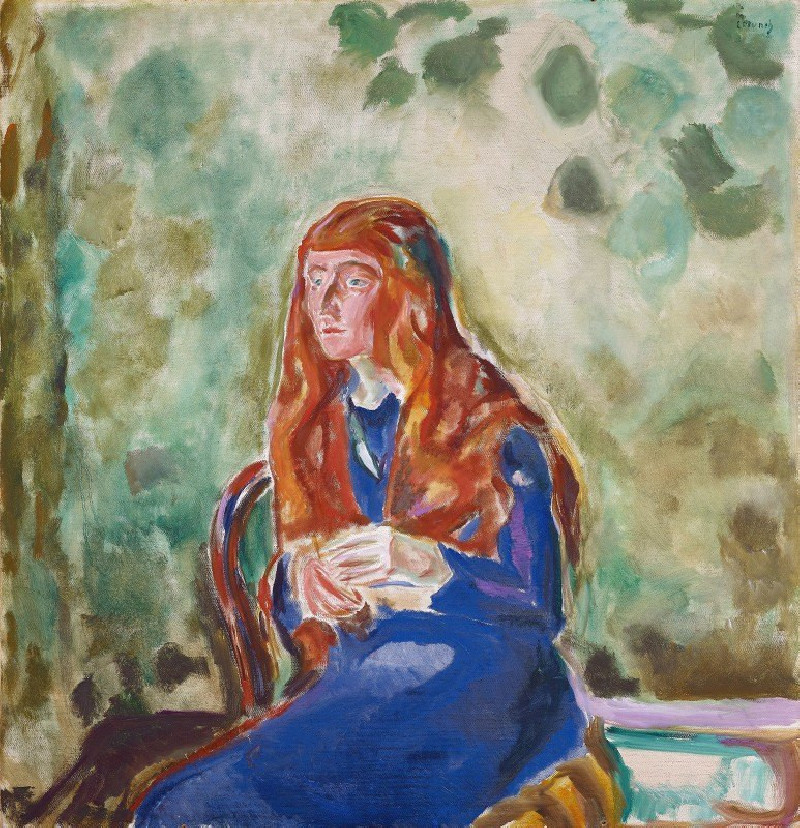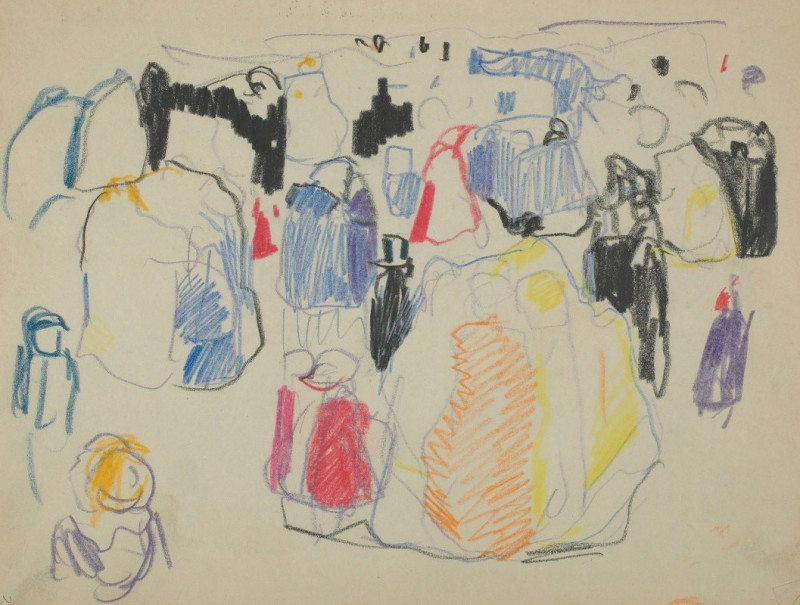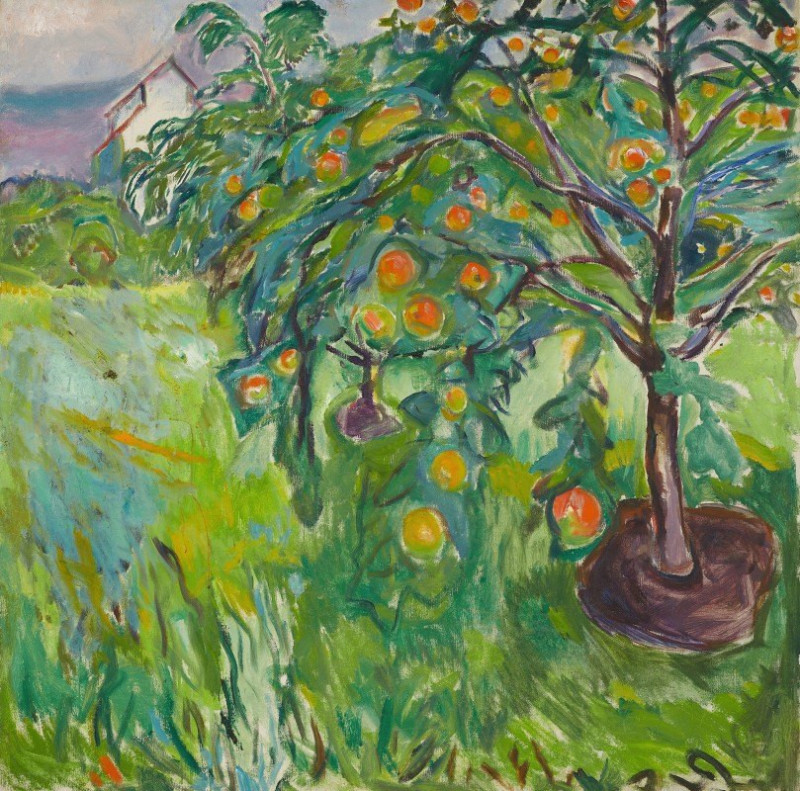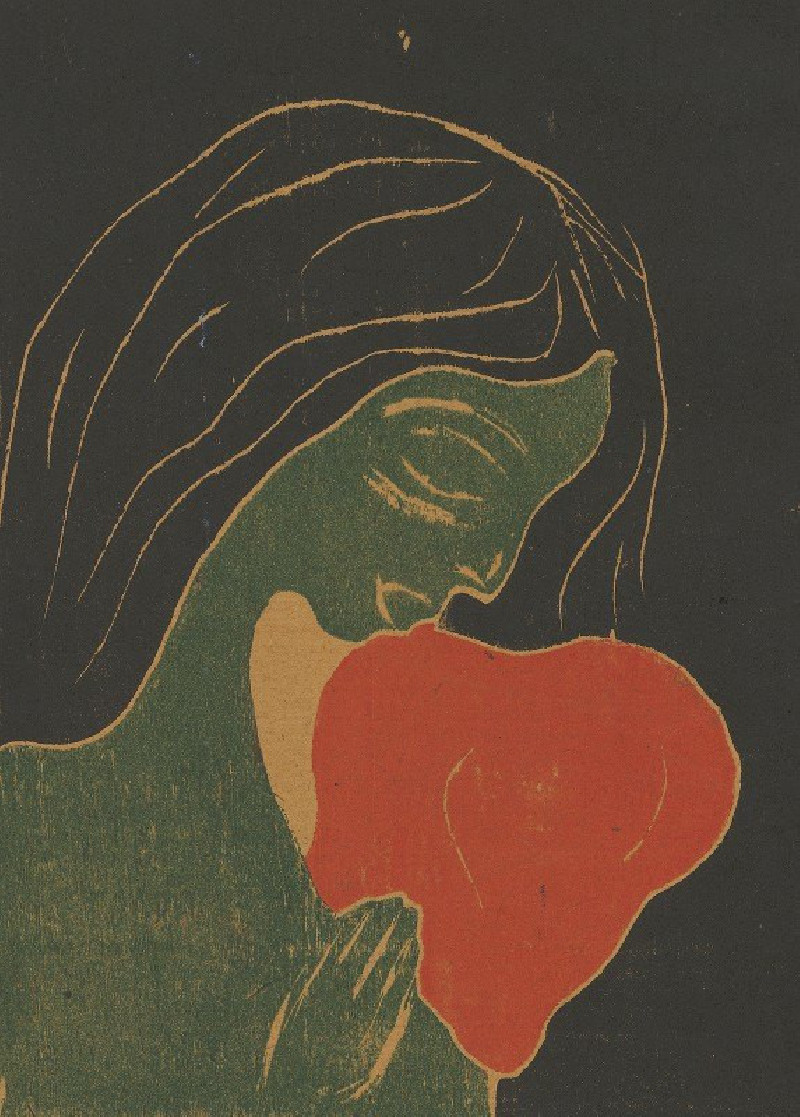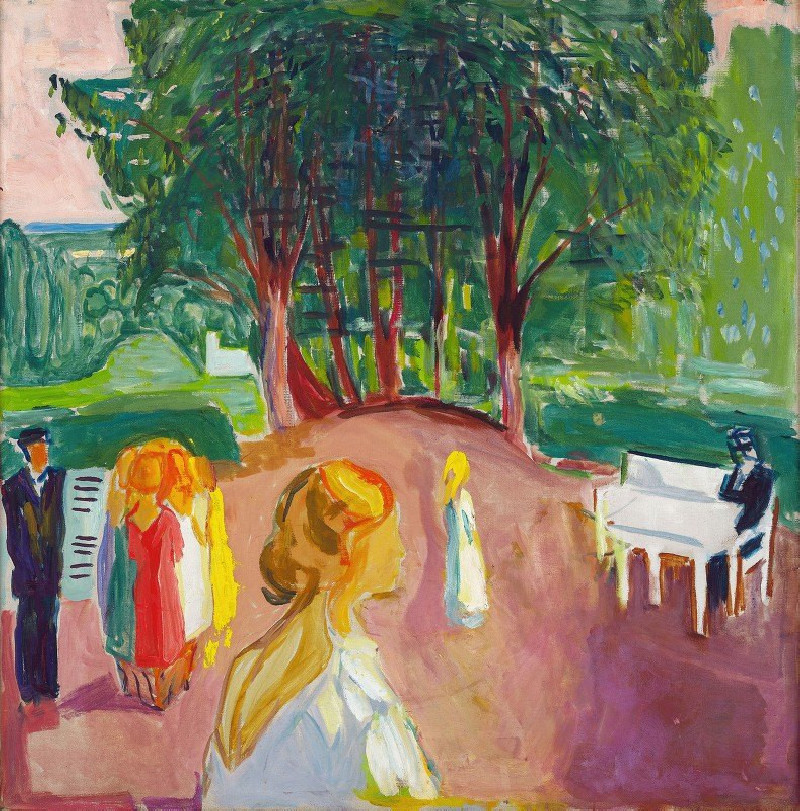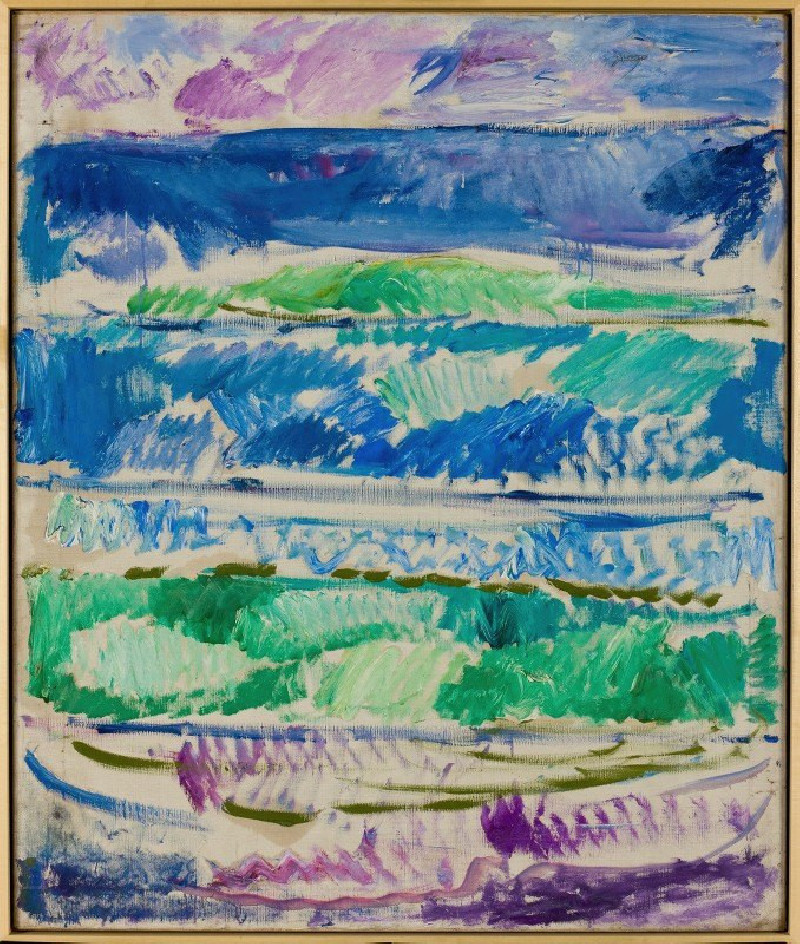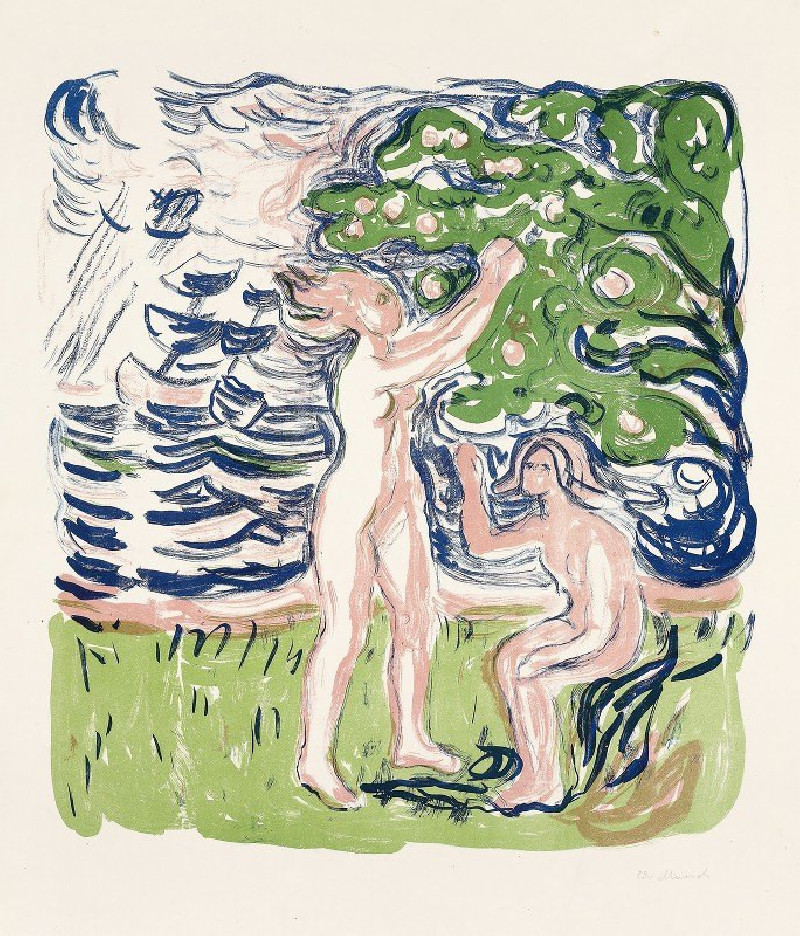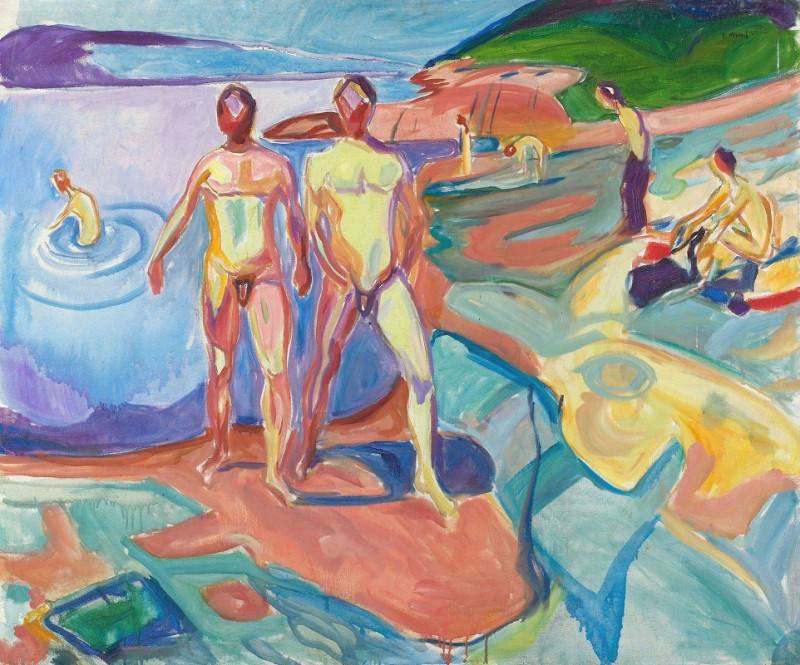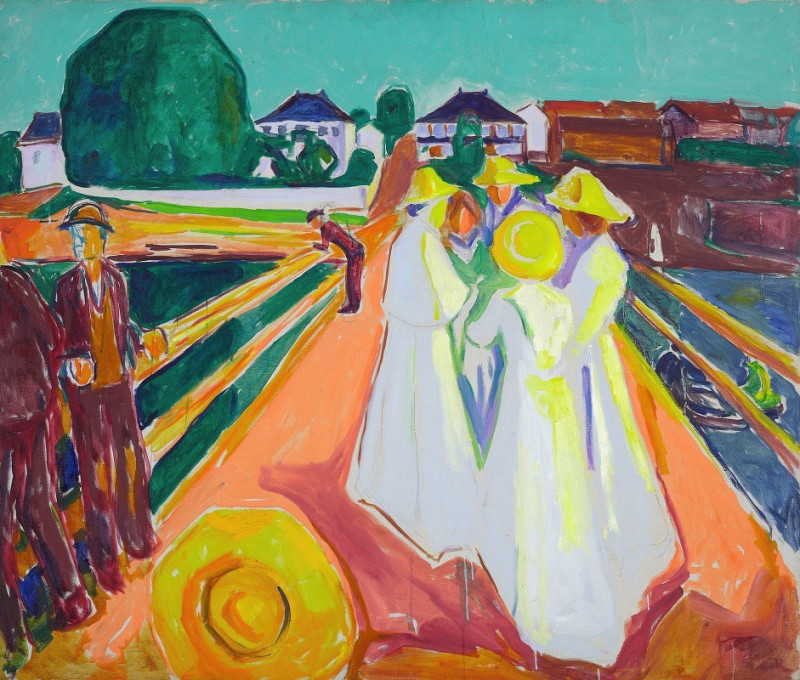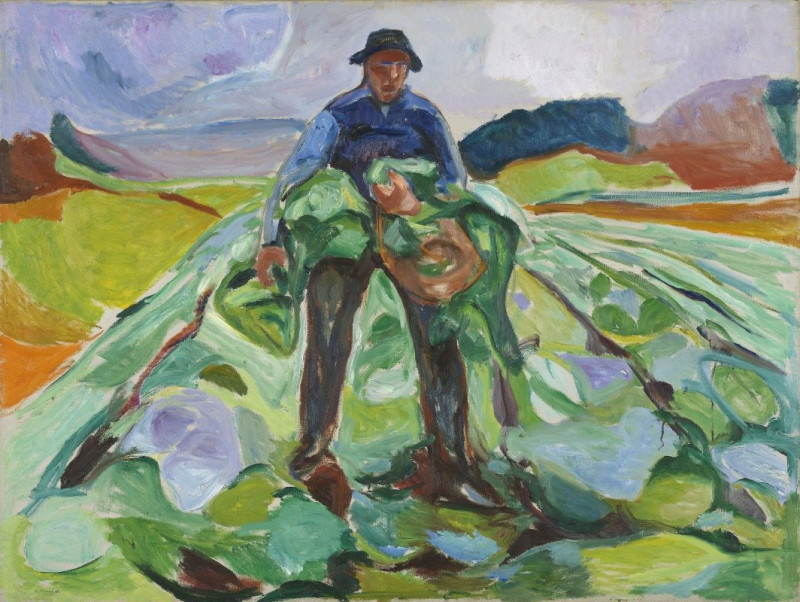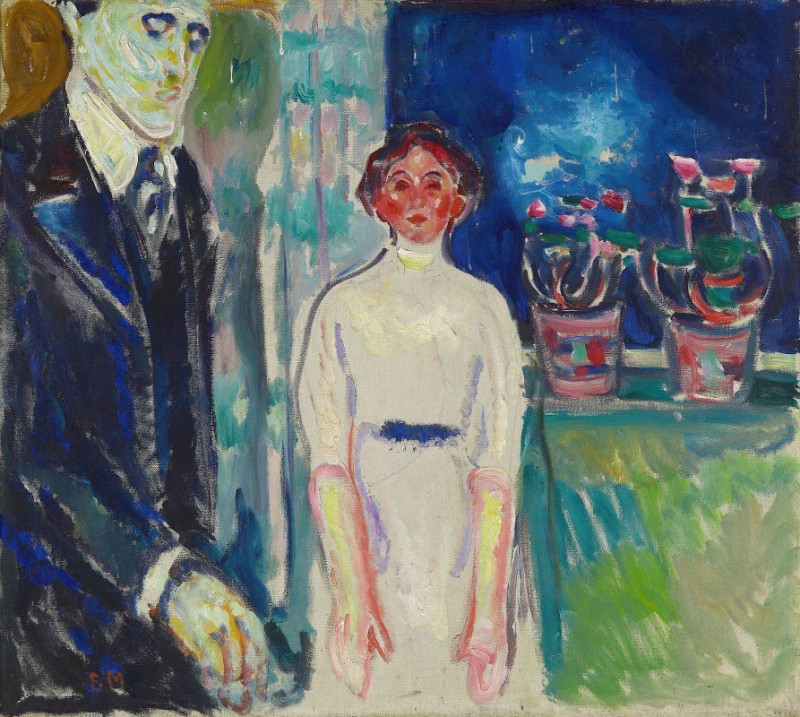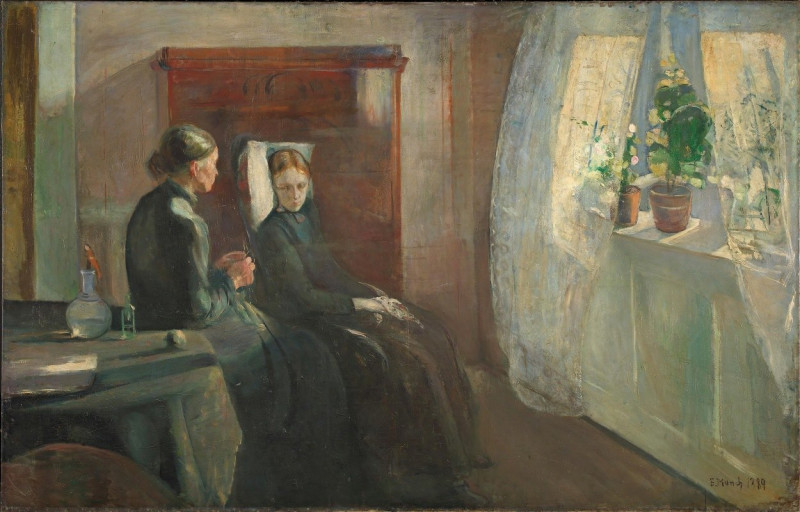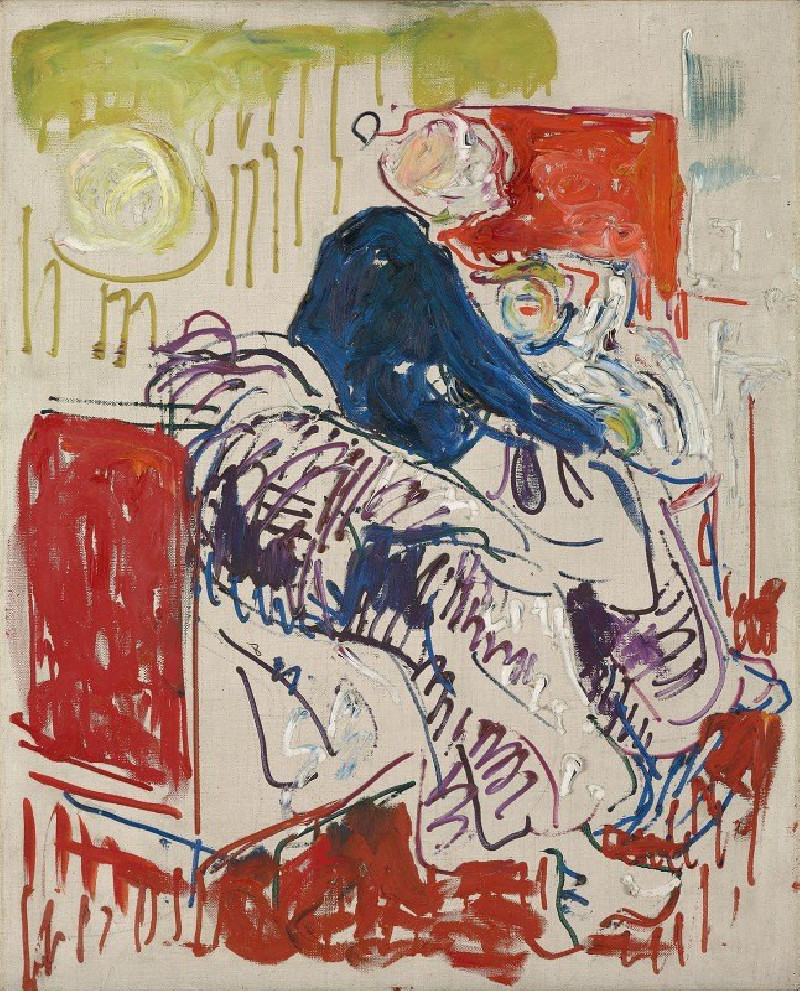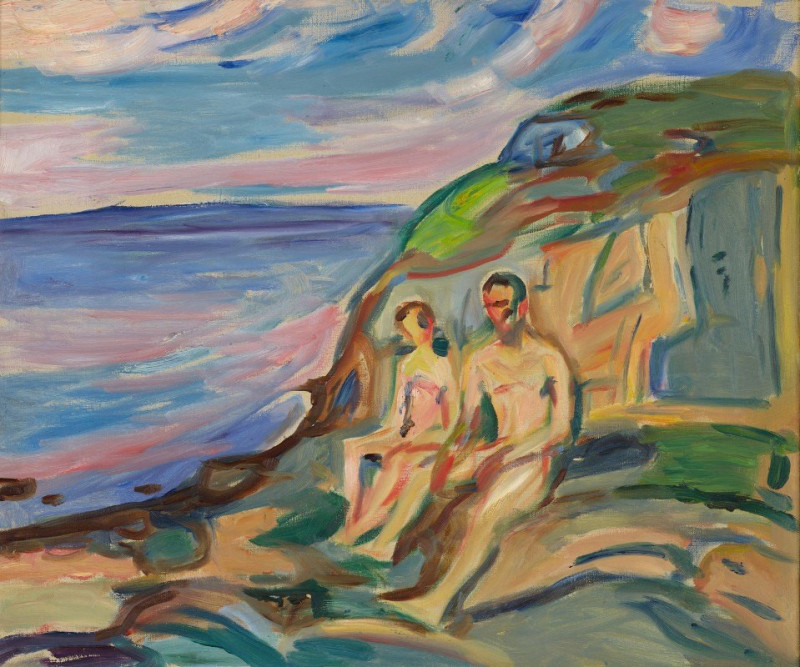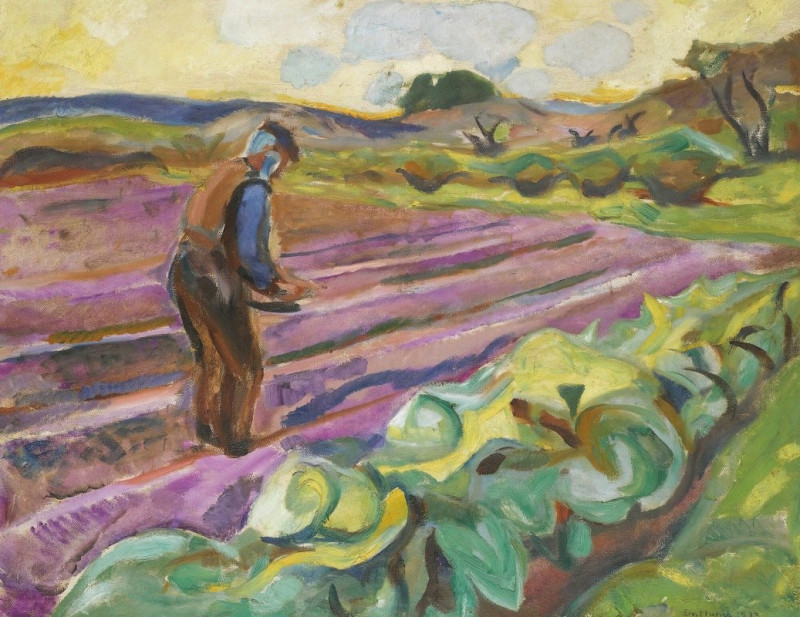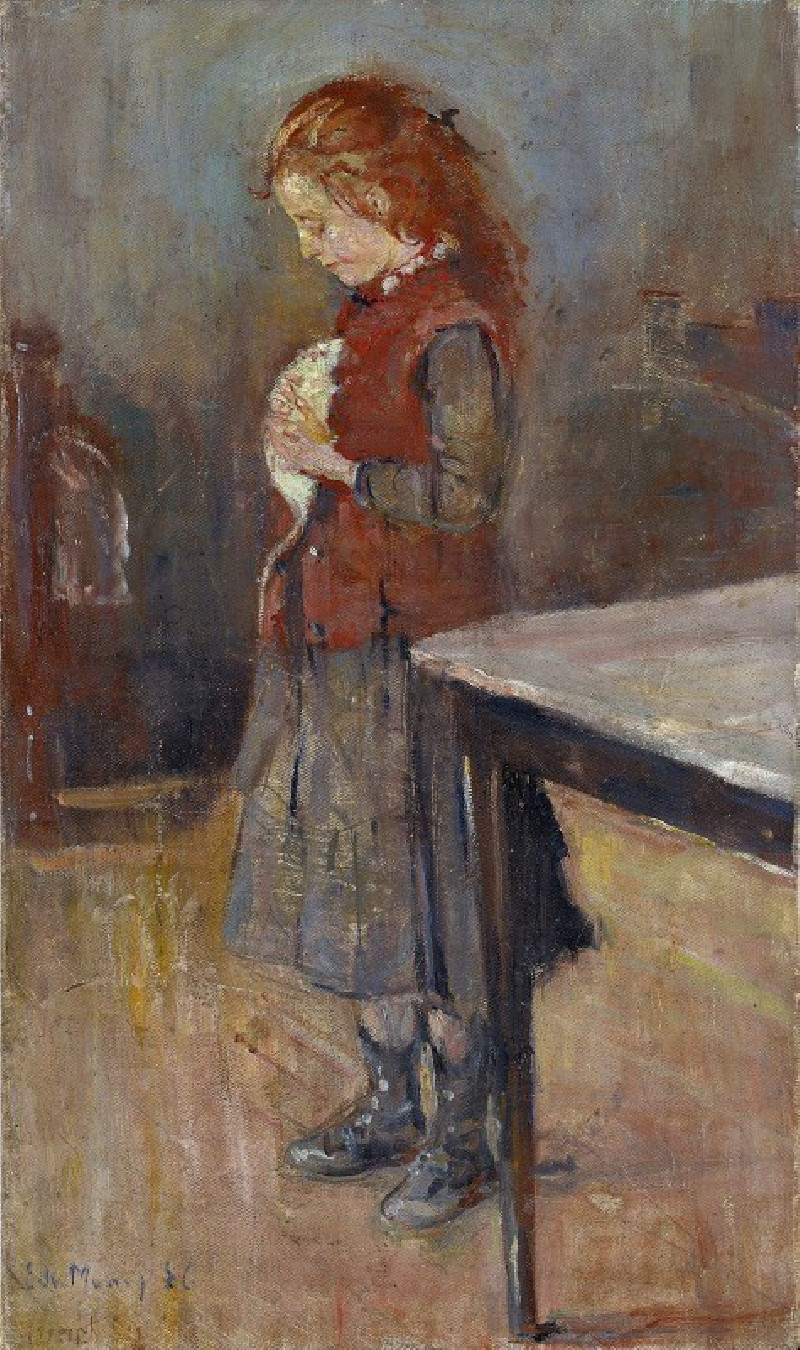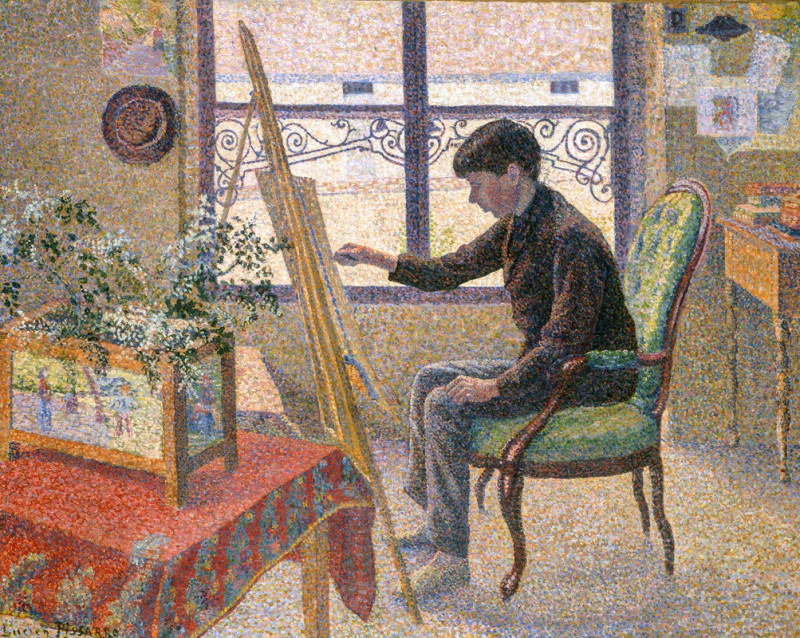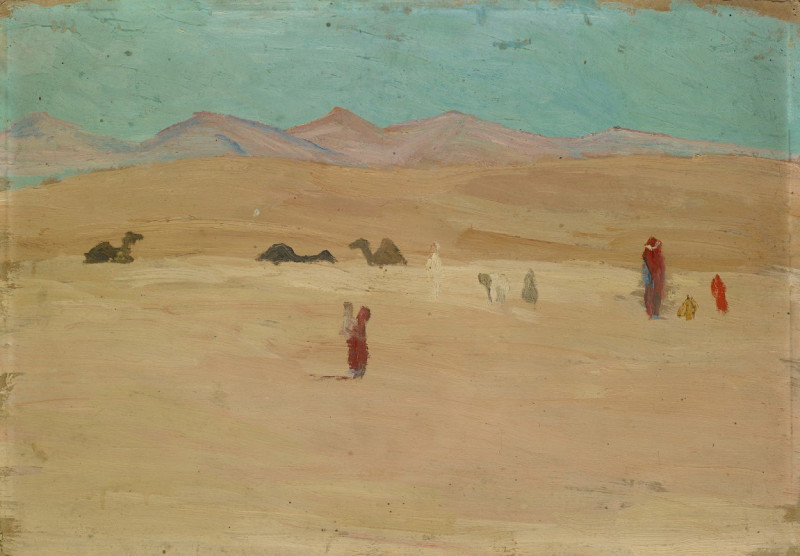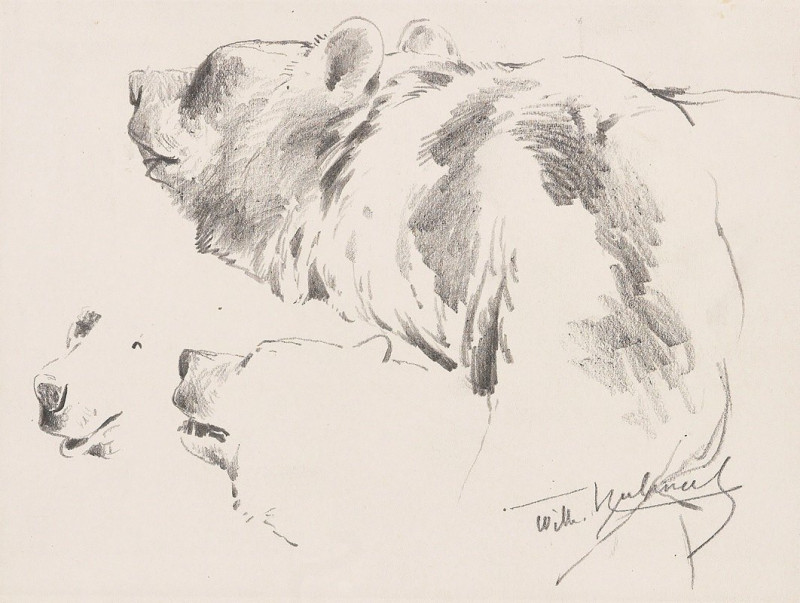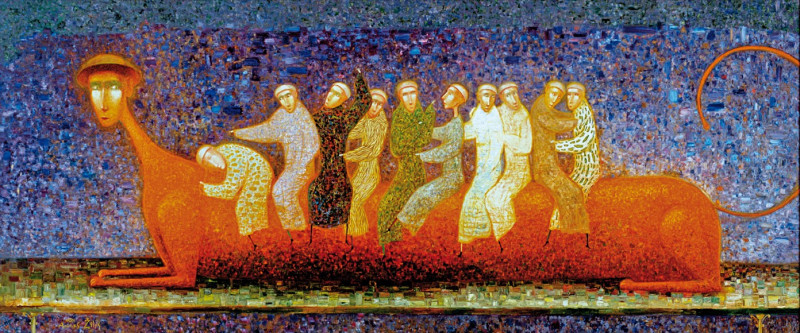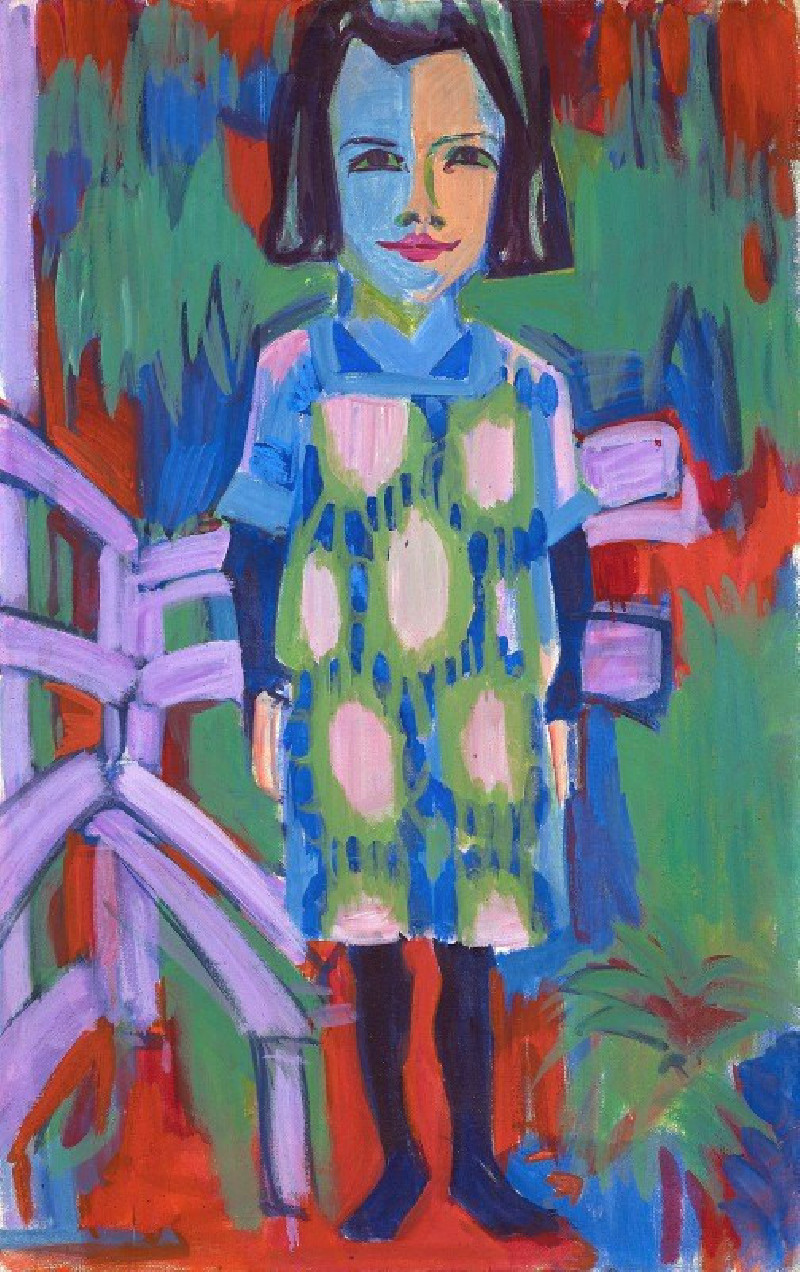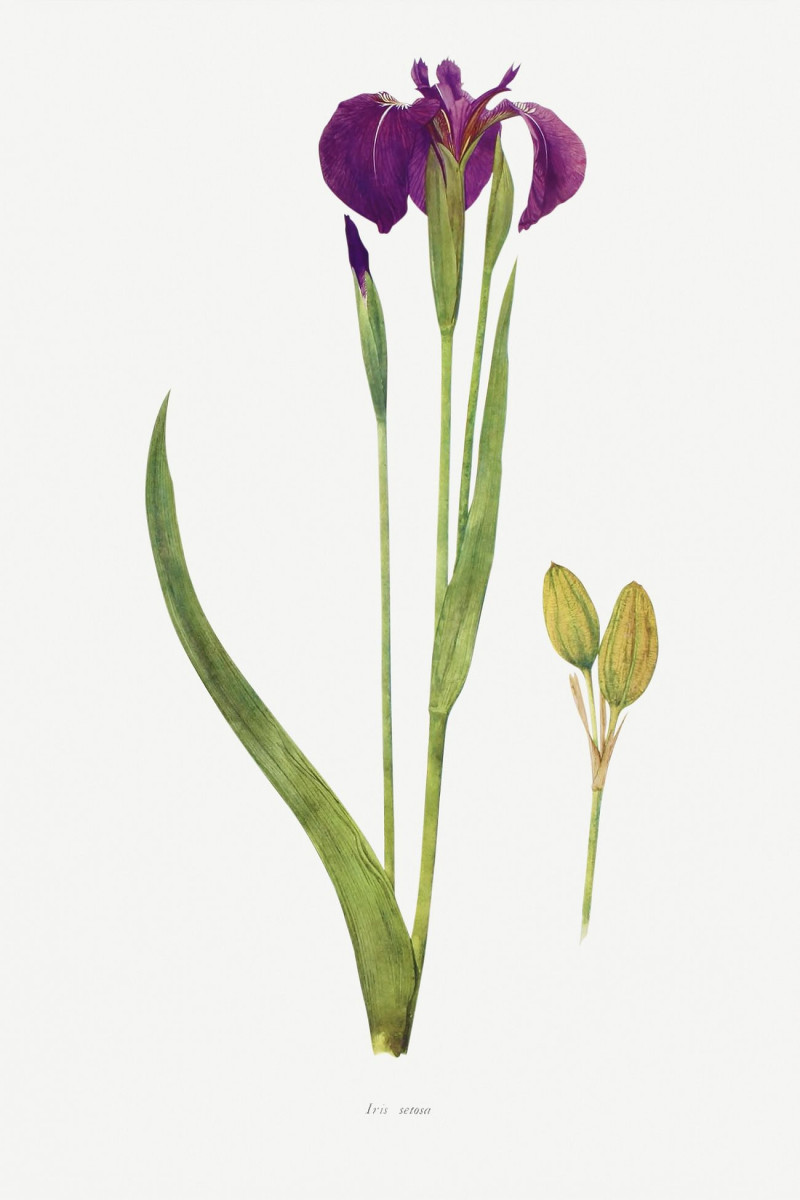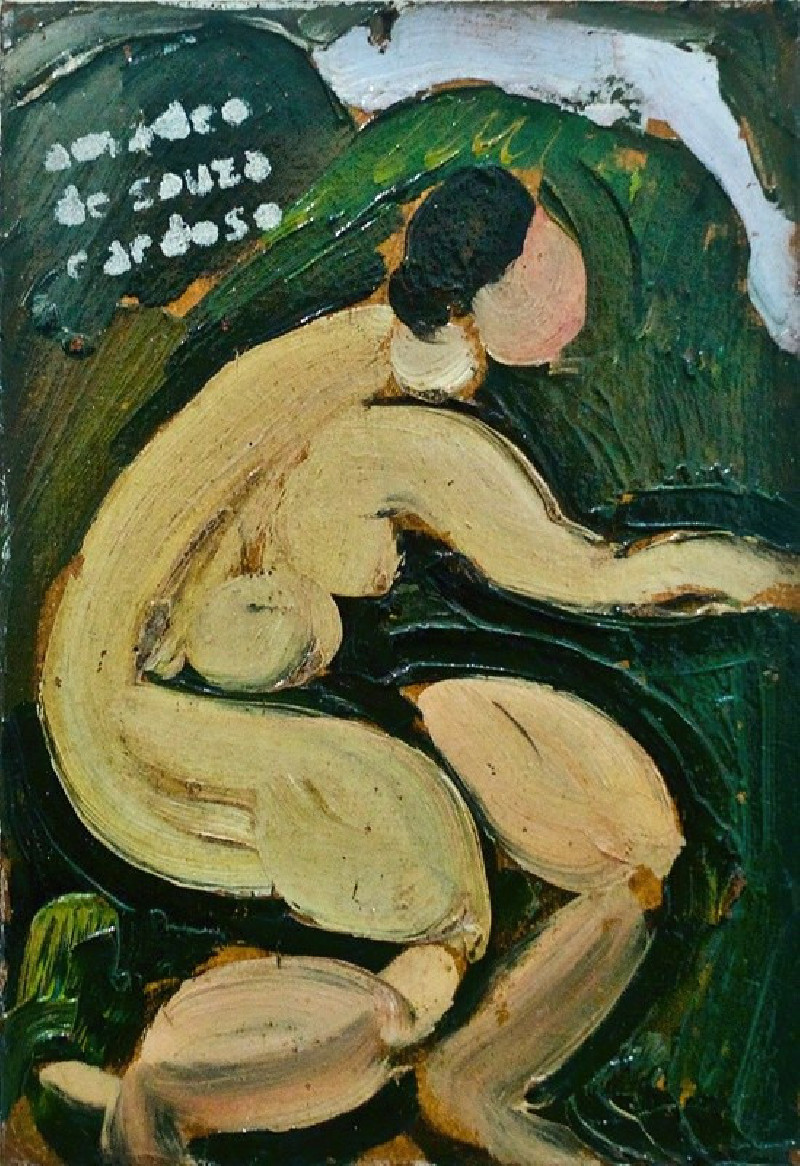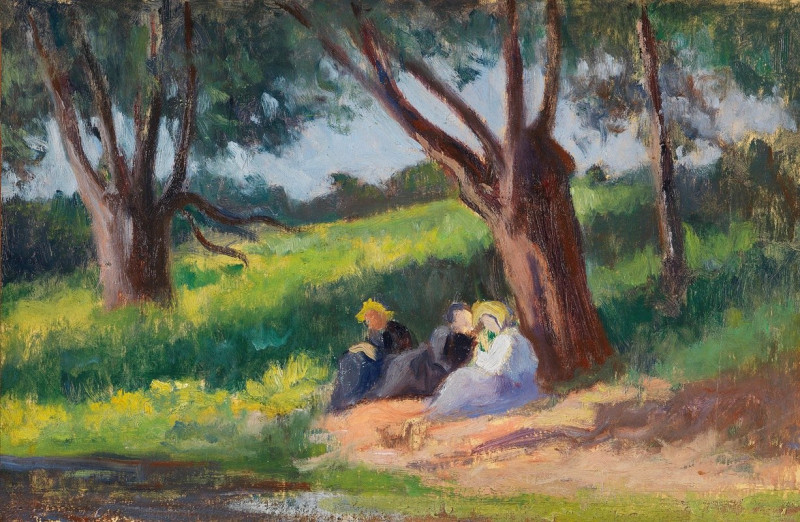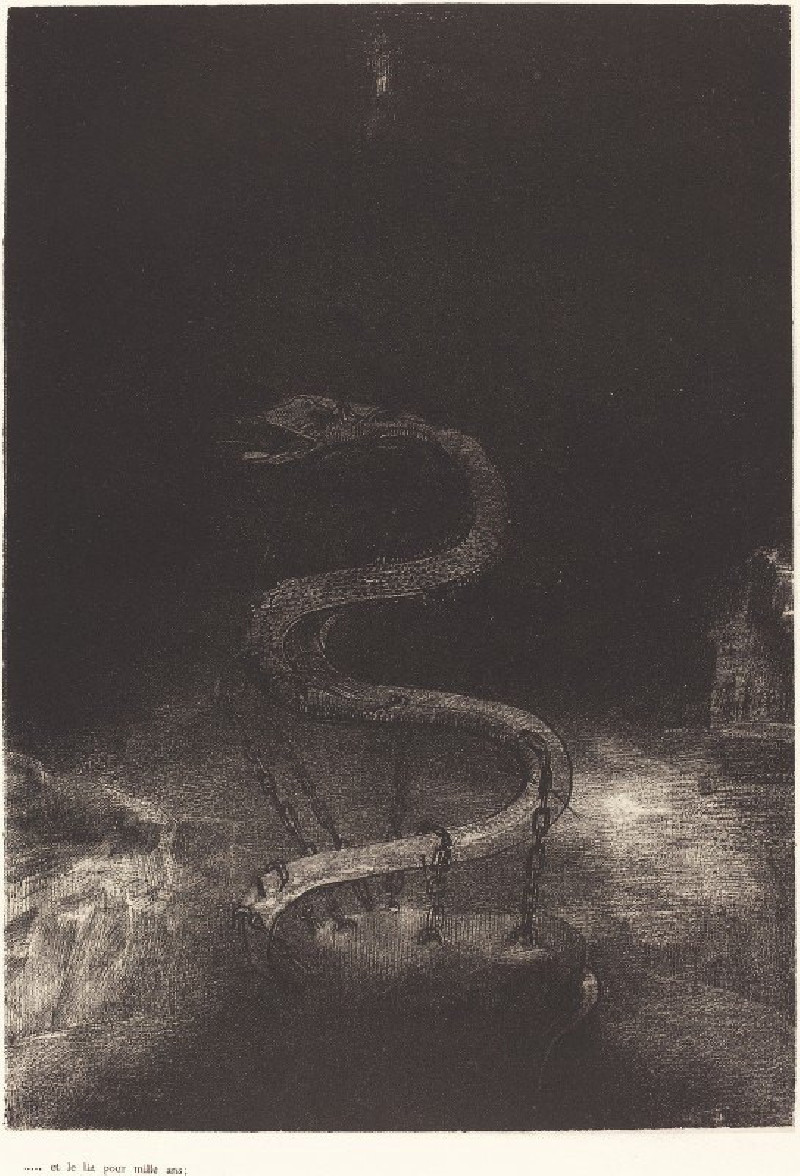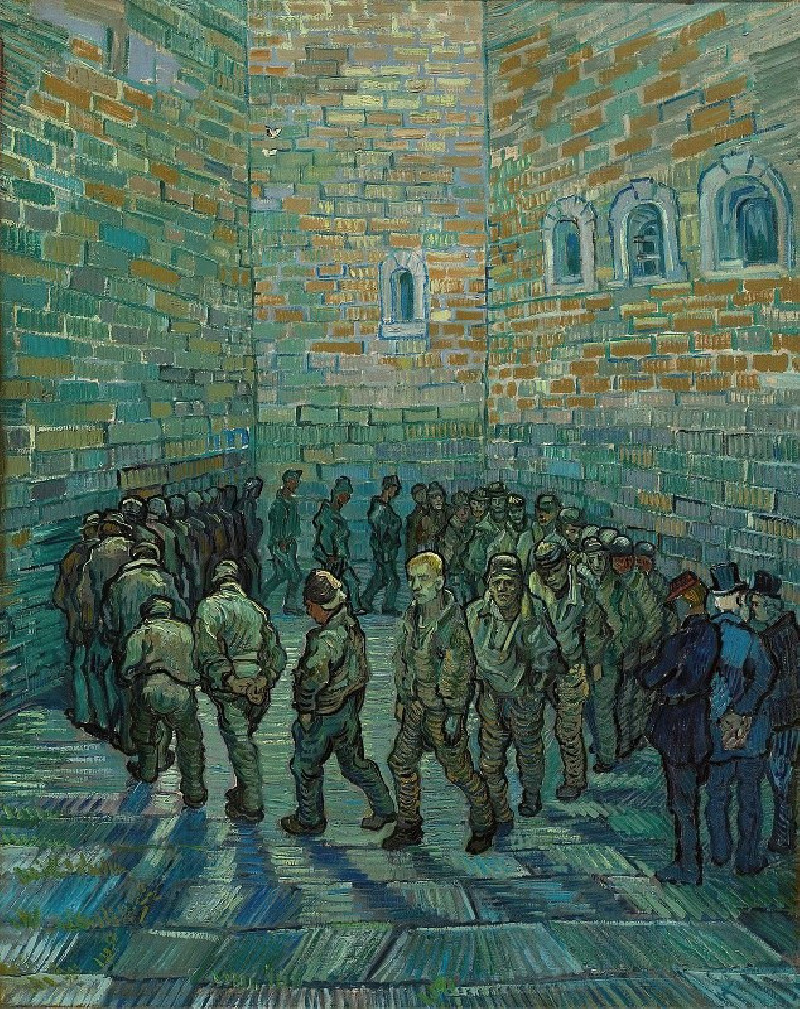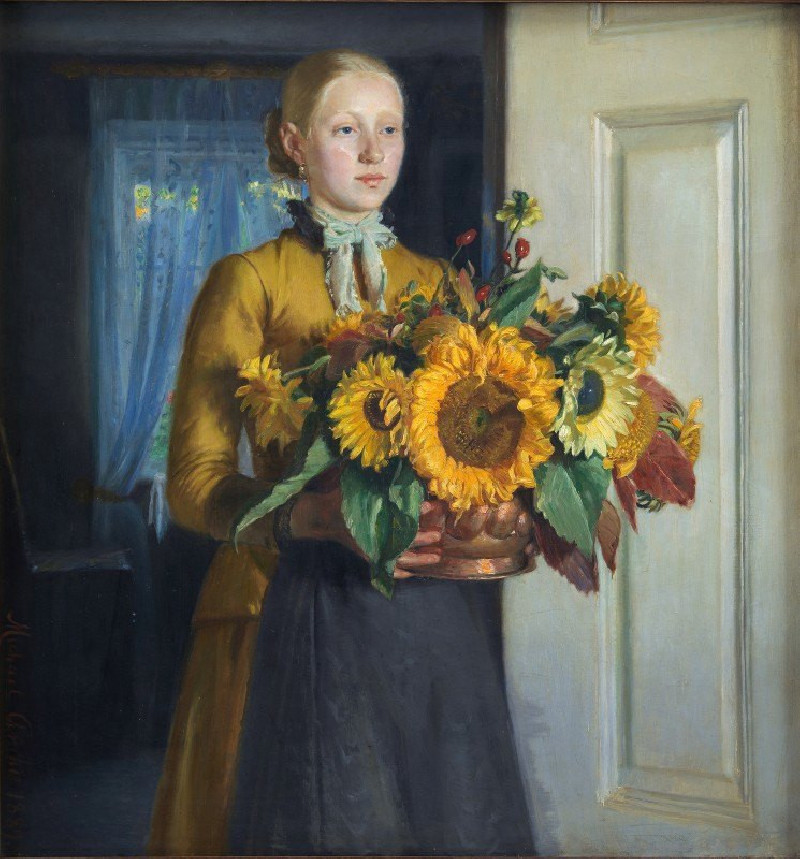Self-Portrait (1940–1943)
Technique: Giclée quality print
Recommended by our customers
More about this artwork
This painting by Edvard Munch, titled "Self-Portrait" (1940–1943), portrays the artist in a somber and reflective mood, standing in an interior setting. Munch is depicted at the center of the scene, dressed in a dark blue suit that contrasts with the vibrant colors around him. His facial expression and posture convey a sense of weariness or contemplative resignation.The background is rich with symbolic elements. To the left, there's a grandfather clock, which might suggest the passage of time or the artist's awareness of his own mortality. On the right side, a set of open doors lead into another room filled with light and what appears to be red furniture. Another noteworthy element is the framed artwork or mirror reflecting a bright orange kettle, adding a dynamic and somewhat enigmatic detail to the composition.The bold, expressive use of color and brushstrokes is typical of Munch's style, integrating elements of symbolism and expressionism. The palette is lively, yet the emotional tone of the painting remains introspective. This juxtaposition may reflect the complex emotional landscape of the artist during this period of his life. The inclusion of interior elements such as the clock, the doors, and the framed artwork or mirror could be further exploring themes of inner versus outer worlds, perception, and the flow of time.
Delivery
Returns
Edvard Munch (12 December 1863 – 23 January 1944) was a Norwegian painter. His best known work, The Scream (1893), has become one of Western art's most iconic images.
His childhood was overshadowed by illness, bereavement and the dread of inheriting a mental condition that ran in the family. Studying at the Royal School of Art and Design in Kristiania (today's Oslo), Munch began to live a bohemian life under the influence of the nihilist Hans Jæger, who urged him to paint his own emotional and psychological state ('soul painting'); from this emerged his distinctive style.



